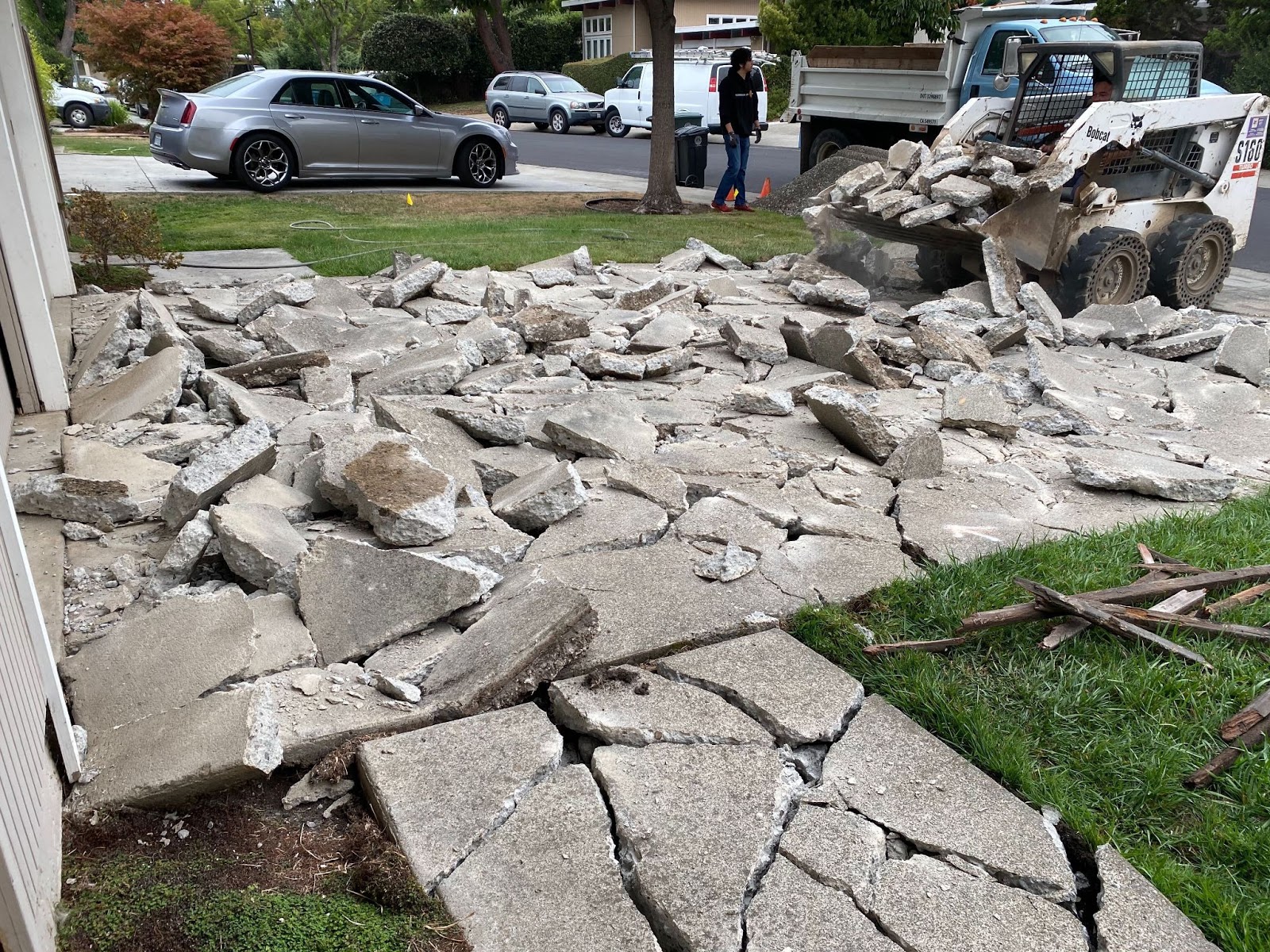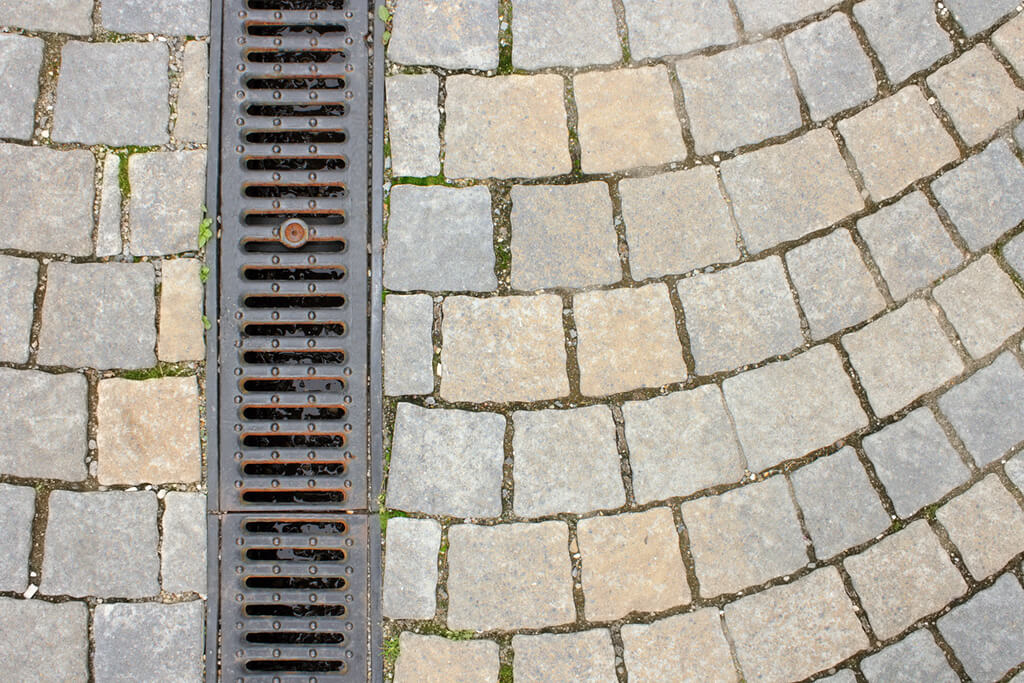Need a new driveway, patio or walkway? There are things you should know about concrete before you set out on your project.
The materials used in your installation are a critical component of how resistant your driveway will be to the elements and ultimately how long it will last. So, before you select your hardscape contractor based on simply price alone- review these factors that should be taken into consideration.
Generally speaking, the process of a hardscape project will look similar from contractor to contractor. Typically, the contractor will do the following:
1. Order the concrete at the batching plant
2. Demolish any existing concrete surface
3. Excavate the project area to the desired depth
4. Grade the area, so water will flow away from the home
5. Compact the sub-grade
6. Place the forms
7. Install and compact base materials
8. Place rebar on top of dobie blocks
9. Pour the concrete
10. Finish the concrete
11. Remove the forms & Cleanup

The base preparation is an essential part of any concrete installation. A contractor will dig up the topsoil first, as concrete projects start from the bottom up. Organic topsoil doesn't have the ability to withstand or uphold concrete, as it will shift over time. That can lead to breaks in your concrete.
After digging, your contractor should compact the subsoil so the pavement has stable ground to be built on.
Subsoils are a product of natural rock decomposition for any given area and are therefore impossible to change. They are also somewhat difficult and expensive to measure and analyze for a small, residential project. That means your contractor should take steps to ensure a proper lower layer.
The way to ensure proper quality while maintaining a reasonable price is by creating a base layer that will ensure a solid, flat surface for final pavement installation.

The bottom layers are labeled base, subbase and subgrade and are made out of rock, gravel and sand.
The Sub-Base layer is the first layer that is installed. There are not always two layers, if there is no second layer, this is just referred to as the Base Layer. This will almost always be at least 4" of Base Rock.
Base Layer is either the only base material installed, or the second of two layers installed. If this is the only layer of base installed, it will almost always be at least 4" of #2 Base Rock. If you're using a sand layer, it will almost always be Concrete Sand at a depth of 1-2", though another sand option is Polymeric Sand (which holds better but is more expensive.)
All layers are installed in the same manner, in small amounts of 1-2" then moistened with water then compacted with a vibratory plate compactor.

Concrete Strength depends on a series of factors:
There are various types of concrete which are distinguished by total yield strength. Concrete specialists will suggest different PSI based on what your concrete surface will be used for. In most cases, residential paving concrete PSI can range from 2500-4000.
The PSI required for your project will depend on your primary use. For example, higher PSI concrete is required if you have an exceptionally heavy vehicle, like an RV, that you plan to keep on the concrete.
Failure to install the proper PSI for your use needs can mean risking cracks and surface damage that can't be repaired unless the whole slab of concrete is replaced. Not only that, lower quality concrete is also more susceptible to damage from chemicals like fuel, oil or salts on your driveway.
There are various types of concrete styles such brushed concrete and stamped concrete, each of which has pros and cons depending on your needs.

There's more to any hardscape project than simply ordering some concrete and pouring it! Reputable contractors will be able to elaborate on other important factors of your hardscape project like the importance of proper drainage and local regulations and requirements for your project.
When your contractor gives you a price quote, it's always good to ask probing questions about the concrete specs, such as:
It's also a good idea to check if your potential contractor offers any kind of warranty or protection for your project. Many will not offer a warranty, but Ergeon does offer one year quality assurance.
While the price of cheaper concrete might seem attractive on paper, the consequences of improper concrete installation are far from desirable. It's always best to do your research and ensure your contractor does not cut corners and will use all of the proper steps and materials to provide you with the best results.
Keep in mind, it's also critical to have proper concrete curing to ensure your driveway's strength and durability.
Have specific questions about concrete projects? Check out our FAQ page for more helpful information.
Did you know that under certain circumstances, homeowners can claim tax deductions for their driveways? It's worth exploring the eligibility criteria and understanding how your driveway can be tax deductible.
 Driveway Guides
Driveway Guides Driveway Guides
Driveway Guides Driveway Guides
Driveway Guides